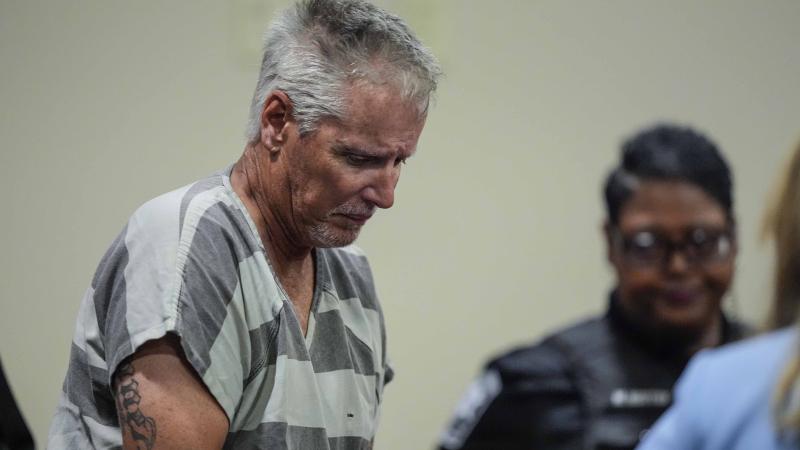Legitimacy of Biden's claim to executive privilege may have to be resolved in court
The limits of executive privilege in relation to a congressional subpoena has not been well defined, and may present the courts with an opportunity to break new ground.
When President Biden asserted executive privilege to prevent the release of the tapes of his interview in his classified documents case, he participated in a tradition extending back to the earliest days of our constitutional republic.
Historically, several of Biden’s predecessors in office have exerted executive privilege—there are multiple types that have evolved throughout American history—to protect state secrets, communications, and law enforcement materials from the prying eyes of Congress. Since the beginning of the republic, Congress has always battled the president about what is and is not covered by the executive privileges, especially as it seeks materials in its oversight investigations.
Though the courts have often ruled that these privileges are limited in opposition to criminal investigations, the legal landscape is less defined when it comes to congressional subpoenas. The current fight will tread new ground in that regard if House Republicans take President Biden to court.
On Thursday, Associate Attorney General Carlos Uriatre announced Biden’s decision to invoke the privilege over the tapes and any other not-yet-produced documents requested by Congressional subpoena just hours before Attorney General Merrick Garland is set to be held in contempt by Congress.
The House Oversight and Judiciary Committees previously subpoenaed the tapes, which were produced as part of Special Counsel Robert Hur’s investigation into the president’s past handling of classified documents. Hur's found that President Biden “willfully retained and and disclosed classified materials” after the end of his vice presidency. Yet, the special counsel ultimately declined to bring charges, citing difficulties in securing a conviction principally due to Biden’s age and less than sharp mental state.
Oversight Committee Chairman James Comer, who leads the House Republicans’ ongoing impeachment probe into the president, vowed to move forward with the contempt vote, despite the president’s claim.
According to the Congressional Research Service, “Presidents have claimed a right to withhold their communications from Congress since the start of the Republic.” At the same time, Congress frequently objected to assertions from the executive, especially as it hindered its ability to conduct oversight.
Over time, four broad categories of executive privilege have emerged under executive branch interpretation, according to CRS. They are: the state secrets privilege, the presidential communications privilege, and the deliberative process privilege. The fourth type is the "law enforcement" privilege.
Attorney General Merrick Garland, who requested the president invoke executive privilege in a memo sent Wednesday, justified the request under this forth type.
“The Department has long recognized that executive privilege protects materials related to a closed criminal investigation where disclosure is likely to damage future law enforcement efforts, which I have concluded is the case here,” Garland wrote.
The White House did not respond to a request for comment from Just the News.
Executive privilege fights between Biden’s predecessors and Congress may provide a roadmap of where his current efforts may lead.
President Donald Trump exerted executive privilege in a similar situation during his tenure. When House Democrats subpoenaed the Justice Department to turn over a full, unredacted version of the Mueller report in 2019, the president exerted the privilege at the request of his attorney general. The fight eventually led to the official—Bill Barr at the time—being held in contempt by the Democratic committee.
President Biden used the same strategy, but only in part. After House Democrats subpoenaed the report, Barr requested President Trump invoke a “protective assertion of executive privilege” in a memo. This type of privilege is intended to be temporary, to give the Justice Department time to review the requested documents and determine which parts, if any, should be shielded by executive privilege.
In Trump’s case, the House Judiciary Committee, then run by Democrats, requested the full, unredacted Mueller report less than 50 days after the report was submitted to the Department of Justice.
"In cases like this where a committee has declined to grant sufficient time to conduct a full review, the President may make a protective assertion of privilege to protect the interests of the Executive Branch pending a final determination about whether to assert privilege,” Barr wrote in his memo.
However, in Biden’s case, the House Oversight and Judiciary Committees, now led by Republicans, requested the tapes of President Biden’s interviews about three months before Biden claimed executive privilege on Thursday. This is a discrepancy one member of the Judiciary Committee said is part of a pattern of stonewalling by the Biden Administration.
“They have a habit of waiting until the last minute—and as the chairman of the Subcommittee on Judiciary, over responsiveness and accountability to oversight—you know, we've seen this time and time again, we request documents, they end up waiting until the day before. We’ve subpoenaed their assistant secretaries, deputy secretaries to come up and testify and then they give us a few pages of publicly available documents or say they can't make it or, you know, they exercise executive privilege,” Judiciary Committee member Rep. Ben Cline told the “Just the News, No Noise” TV show Thursday night.
“So this is just the latest in a long line of stalling, of stonewalling. And it contributes to what is an ongoing impeachment investigation. If obstruction becomes an issue, an overwhelming issue, it is the responsibility of Congress to bring forward that concern,” he added.
Assertions of executive privilege have had a mixed record when being challenged. President Bill Clinton famously invoked executive privilege a total of 14 times in amid the fallout of both the Whitewater and Monica Lewinsky scandals. Ultimately, the federal courts ruled “the prosecutor’s needs outweighed the confidentiality of executive documents and discussions,” according to the Constitution Center.
In Clinton’s legal battle the courts cited the landmark case U.S. v. Nixon in which the Supreme Court unanimously decided that executive privilege was both constitutional and sometimes necessary, yet also said that it is limited, especially when criminal investigations are involved. This case followed several legal battles surrounding the Watergate scandal during President Richard Nixon’s tenure.
However, the courts have most often dealt with executive privilege in relationship to active criminal investigations by prosecutors. In President Biden’s case, as with Trump’s, the information is sought by congressional committees.
Unlike other types of privilege claims, however, the Supreme Court has not yet considered an assertion related to a congressional investigation, according to the CRS. The last time any court considered such a claim came during the Nixon Watergate investigations, but it never reached the high court.
In the case of Senate Select Committee v. Nixon, the D.C District Court refused to enforce a subpoena from the Senate Watergate Committee, but only because it believed any disclosure of the materials to the committee would imperil the Special Prosecutor’s work—criminal investigations into the scandal. The Court of Appeals for the District of Columbia affirmed the lower court's decision.
But, the court may eventually have a chance to consider the arguments anew. Rep. Cline told Just the News that he believes his committee could challenge the Biden privilege claim.
“It's very possible that this will end up in court," Cline said on Thursday evening on the "Just the News, No Noise" TV show. "We anticipate a committee vote and then potentially a House floor vote this week.”
"At the end of the day, the House is going to express its view that Congress is a coequal branch of government," Cline said. "We're entitled to the tapes. They can't pick and choose which transcript or which form of testimony they're going to provide the committee.”
The Facts Inside Our Reporter's Notebook
Documents
Links
- Carlos Uriatre announced Bidenâs decision
- âwillfully retained and and disclosed classified materialsâ
- vowed to move forward
- Congressional Research Service
- Donald Trump exerted executive privilege
- a memo
- according to the Constitution Center
- U.S. v. Nixon
- according to the CRS
- affirmed the lower court's decision.
















